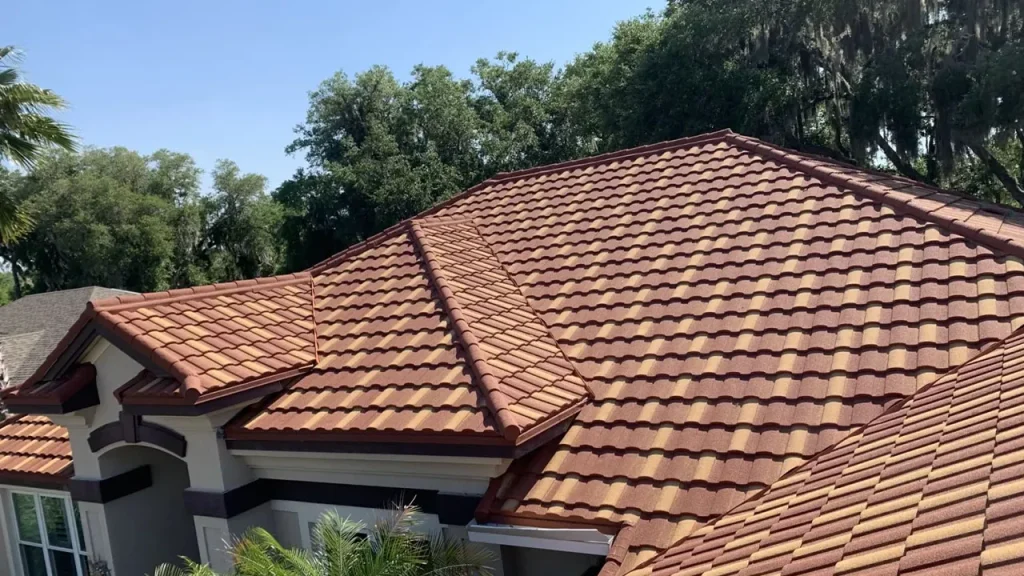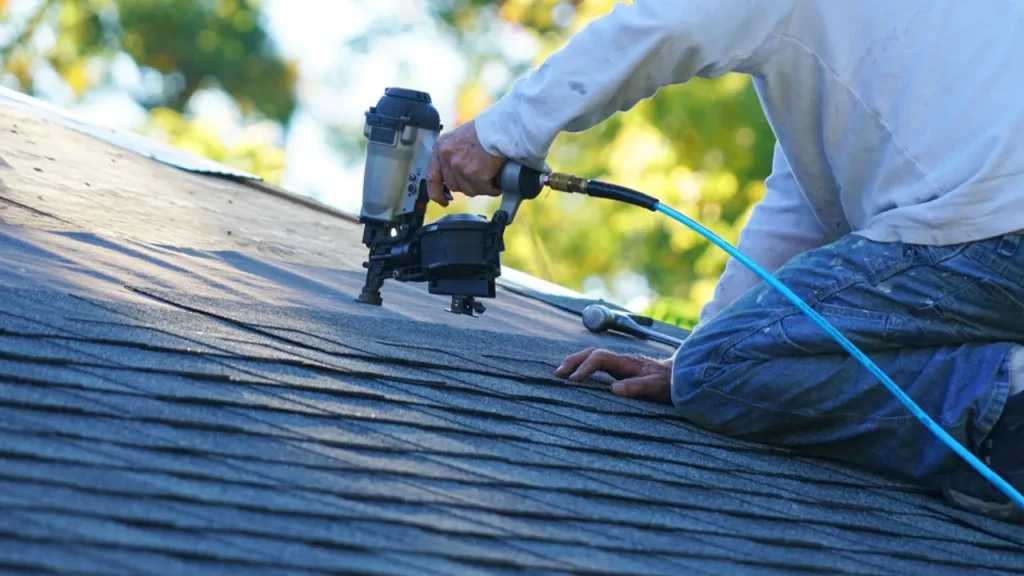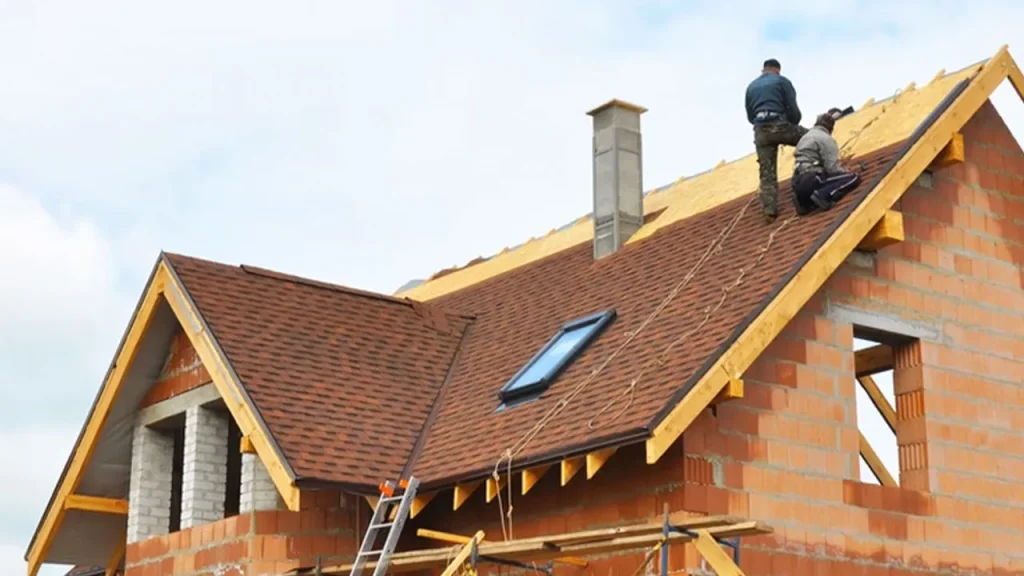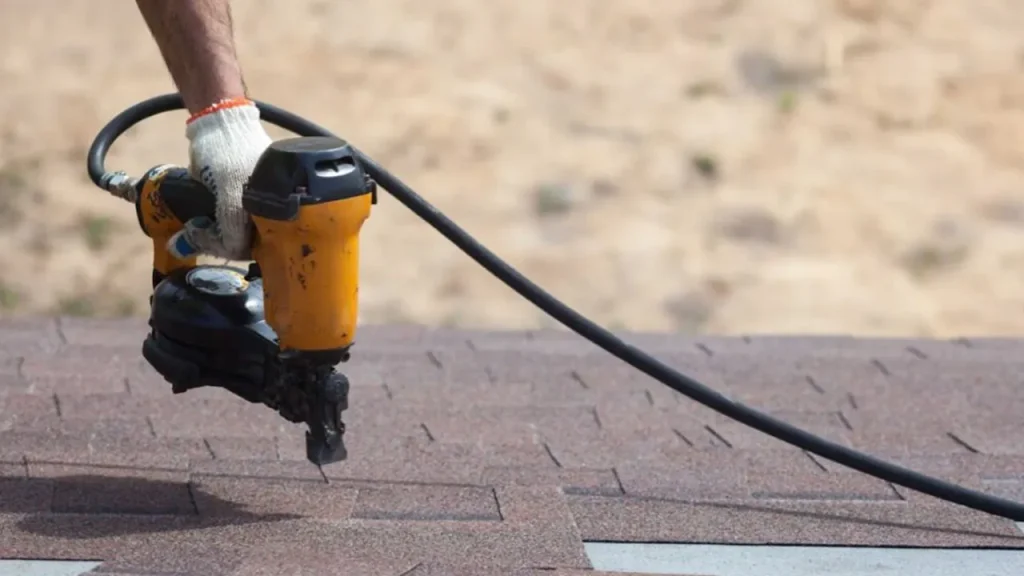RESIDENTIAL ROOFING IN CLEARWATER
Thinking about choosing, putting on, or just keeping up with the roof on your Clearwater home? It really involves getting a handle on our unique Florida environment. As your trusted local residential roofer, we see it all the time – things like that intense sun, serious humidity, heavy downpours, salty coastal air, and, yep, hurricanes. They all play a huge part in how well a roof does its job and how long it’s going to last. Getting residential roofing right means knowing the best materials to use, the proper ways to install them, and the specific rules for our area. This guide? It’s here to cover the key things Clearwater homeowners like you really need to know about their roofs.
From figuring out the different roof styles you see in neighborhoods like Countryside and Island Estates to picking materials that can actually stand up to the heat and storms, having the right info is just plain crucial. We’re going to cover everything – from permits and those HOA rules to making your roof energy efficient and helping it last longer, offering comprehensive residential roofing services along the way.
Need some expert advice from a qualified residential roofer for your Clearwater home? Don’t hesitate to get in touch with our team today!
Call us today at 727-677-06425

KEY ASPECTS OF RESIDENTIAL ROOFING IN CLEARWATER
- What Roof Types & Styles are Common in Clearwater Neighborhoods?
- Picking the Best Roofing Materials for Florida’s Wild Climate
- How Does Our Climate Really Impact Your Roof? (Sun, Rain, Wind, Salt – Oh My!)
- Smart Roof Installation Techniques for Hurricane Resistance
- Energy-Efficient Roofing Options That Can Save You Money
- Getting Through Local Building Codes, Permits, and HOA Hoops
- Roof Maintenance and residential roof repairs
- How Roof Lifespans Stack Up in Clearwater
- Spotting Those Early Warning Signs of Roof Trouble
- What to Think About with Warranties for Residential Roofs
- Making it Look Good: Roof Styles and Colors
Locations we cover
We offer our services throughout CLEARWATER & sURROUNDING aREAS
BELLEAIR • DUNEDIN • LARGO • OLDSMAR • PINELLAS PARK • PALM HARBOR • SAFETY HARBOR • SEMINOLE • ST. PETERSBURG • TARPON SPRINGS
Clearwater’s Climate Challenges for Home Roofs
Clearwater’s weather really throws some specific curveballs at residential roofing. That intense sun we get? It can really break down materials, especially those asphalt shingles. High humidity loves to encourage mold and algae growth, and it means your attic ventilation has to be top-notch. Our heavy summer rains put flashing and underlayment to the ultimate test, making proper installation absolutely critical to prevent leaks needing residential roof repairs. If your home is near the coast, you’re dealing with corrosive salt air that can damage metal parts. And, super importantly, Clearwater is in a high-wind hurricane zone. This demands strong materials and beefed-up attachment methods, all put in by competent residential roofing contractors. Understanding how these things affect your roof helps you, the homeowner, make much smarter decisions.

Best Roofing Materials for Clearwater Homes
Picking the right material for your residential roofing project means you’ve got to balance cost, how it looks, and how long it’ll last. Asphalt shingles are pretty common; we usually recommend premium architectural shingles that have algae resistance built in. Residential metal roofing is a very popular choice for its durability and storm protection – it can often last 40-70 years! Aluminum is your best bet if you’re near the coast. Clay and concrete tiles give that classic look and are super durable, but they’re heavy, so your roof needs to be able to support them. For residential roof installation on flat or low-slope parts of a roof, TPO or EPDM work really well. Residential steel roofing offers good strength but definitely needs the right coatings if it’s near salt air. And then there are composite/synthetic materials that mimic natural looks with pretty good performance. Chatting with experienced residential roofing companies can really help you nail down the best option for your home.
Understanding Clearwater Residential Roof Styles
Clearwater homes showcase all sorts of roof styles, don’t they? Gable roofs are great at shedding rain but do need good bracing. Hip roofs? They tend to offer better wind resistance, which is a plus around here. You’ll see shed roofs on more modern designs, while flat roofs need really careful drainage planning – and often require residential flat roof repair expertise if problems pop up. Lots of upscale homes even feature combination roofs, mixing styles. Architectural trends lean towards Mediterranean styles (often with tile), breezy coastal designs, and sleek contemporary looks. The pitch of your roof matters too; steeper pitches generally handle wind and rain better, especially near the coast, while lower pitches need extra-special waterproofing during the residential roof installation.

Roofing Near Clearwater’s Coastlines: Special Considerations
Residential roofing near the Gulf? That definitely calls for some extra attention. Salt air loves to corrode metal, which is why aluminum is usually preferred for residential metal roofing and any flashing. All your fasteners absolutely must be high-quality stainless steel. Giving things a regular freshwater rinse can help too. Coastal homes also need beefed-up attachment methods that go beyond just the basic code – this is work best left to experienced residential roofing contractors who know the ropes.
Keeping Cool: Energy-Efficient Roofing for Homes
Energy efficiency is a huge deal for Clearwater residential roofing. Why? Because an energy-efficient roof can seriously lower those cooling costs. Your best bet is to choose “cool” materials that have high solar reflectance (think light colors or shingles with special pigments). Proper attic ventilation, installed the right way by your residential roofer, is also crucial for letting all that hot air escape. And don’t forget, adequate attic insulation and radiant barriers work hand-in-hand with your roof system to save you energy (and money!).

Clearwater Residential Roofing Rules: Codes, Permits, & HOAs
Anytime you’re doing residential roofing work, there are strict rules you’ve got to play by. The Florida Building Code lays down the law for wind resistance, materials, and how things should be installed. You’ll need permits for most work, definitely including residential roof replacement. Inspections? Yep, those are mandatory. And let’s not forget HOAs – many have their own rules about what materials and colors you can use, and they’ll want to approve things first. Bottom line: only licensed residential roofing contractors should be doing any permitted work on your home.
Roof Maintenance & Catching Problems Early
Want your residential roofing to last as long as possible? Regular maintenance is your best friend. We usually recommend getting a professional inspection done once a year. Keep an eye out for signs on the outside like algae streaks, any missing shingles, or corrosion. Inside, look for water stains or that musty smell in the attic. Catching these issues early can save you from needing major residential roof repairs down the line. Simple things like routine cleaning, keeping gutters clear, and trimming overhanging branches are key maintenance tasks, often best handled by professional residential roofing services. This also means knowing when residential flat roof repair might be on the horizon for those specific roof sections.

Comparing Roof Lifespans in Clearwater
How long a roof actually lasts depends a whole lot on the material itself, how good the installation was, whether it’s been maintained, and, of course, our lovely climate. This table gives you a peek at typical adjusted lifespans for Clearwater residential roofing:
| Roofing Material | General Lifespan | Clearwater Adjusted Lifespan | Limiting Factors in Clearwater |
|---|---|---|---|
| 3-Tab Asphalt Shingles | 15-20 years | 10-15 years | That strong UV and high heat take a toll. |
| Architectural Shingles | 25-30 years | 15-20 years | Temperature swings and humidity – the usual suspects. |
| Metal Roofing (Steel) | 40-60 years | 30-45 years | Salt air can be a problem if you’re right on the coast. |
| Metal Roofing (Aluminum) | 50-70 years | 40-60 years | Hardly any drop; it’s a top pick for coastal spots! |
| Clay Tiles | 75-100 years | 50-75 years | Can be vulnerable when big storms roll through. |
| Concrete Tiles | 50-75 years | 30-50 years | Humidity can cause the surface to break down over time. |
| TPO Membrane | 20-30 years | 15-25 years | Intense UV exposure is the main challenge here. |
| PVC Membrane | 20-35 years | 20-30 years | Actually holds up pretty well in our coastal conditions! |
| Modified Bitumen | 20-30 years | 15-20 years | High heat tends to wear it down faster. |
| Synthetic/Composite | 40-50 years | 30-40 years | UV rays and a chance of warping in the heat. |
*Just a heads-up: A quality installation by skilled residential roofing contractors and keeping up with proper maintenance? Absolutely key to hitting these numbers.*
Clearwater Residential Roofing Questions & Answers
What type of roof lasts longest in Clearwater?
Generally speaking, if they’re well-installed, tile and premium metal roofs tend to offer the longest lifespans around here – often 50 years or even more, especially when put in by reputable residential roofing companies. Just keep in mind, the underlayment under tile might need replacing sooner than the tiles themselves.
How often should I have my residential roof inspected in Clearwater?
We usually recommend an annual professional inspection by a qualified residential roofer. It’s also a smart idea to get it checked out after any major storms roll through.
Are cool roofs really effective in Clearwater?
Yes, they absolutely are! Cool roofs can significantly bring down attic temperatures and might lower your cooling costs by anywhere from 7% to 25% when they’re part of a proper residential roof installation.
My HOA limits roof colors. What are my options?
Your best bet is to choose the lightest color they’ll approve. Some materials actually offer “cool” darker colors that still reflect heat well. Always, always get HOA approval before your residential roofer starts any work!
Does insurance cover residential roof replacement due to age?
Unfortunately, no. Insurance is there for sudden, unexpected damage, not for normal wear and tear or aging. Replacing an old roof is considered homeowner maintenance. You’ll need a residential roofer to give you a quote for a residential roof replacement.
CONTACT YOUR CLEARWATER RESIDENTIAL ROOFER EXPERTS
Need a hand with residential roofing services, some repairs, or a full replacement here in Clearwater? Whether it’s a brand new residential roof installation or just some important maintenance, don’t hesitate to Give Us a Call Today. We’re the expert residential roofer team that Clearwater homes count on.
Call us today at 727-677-06425
